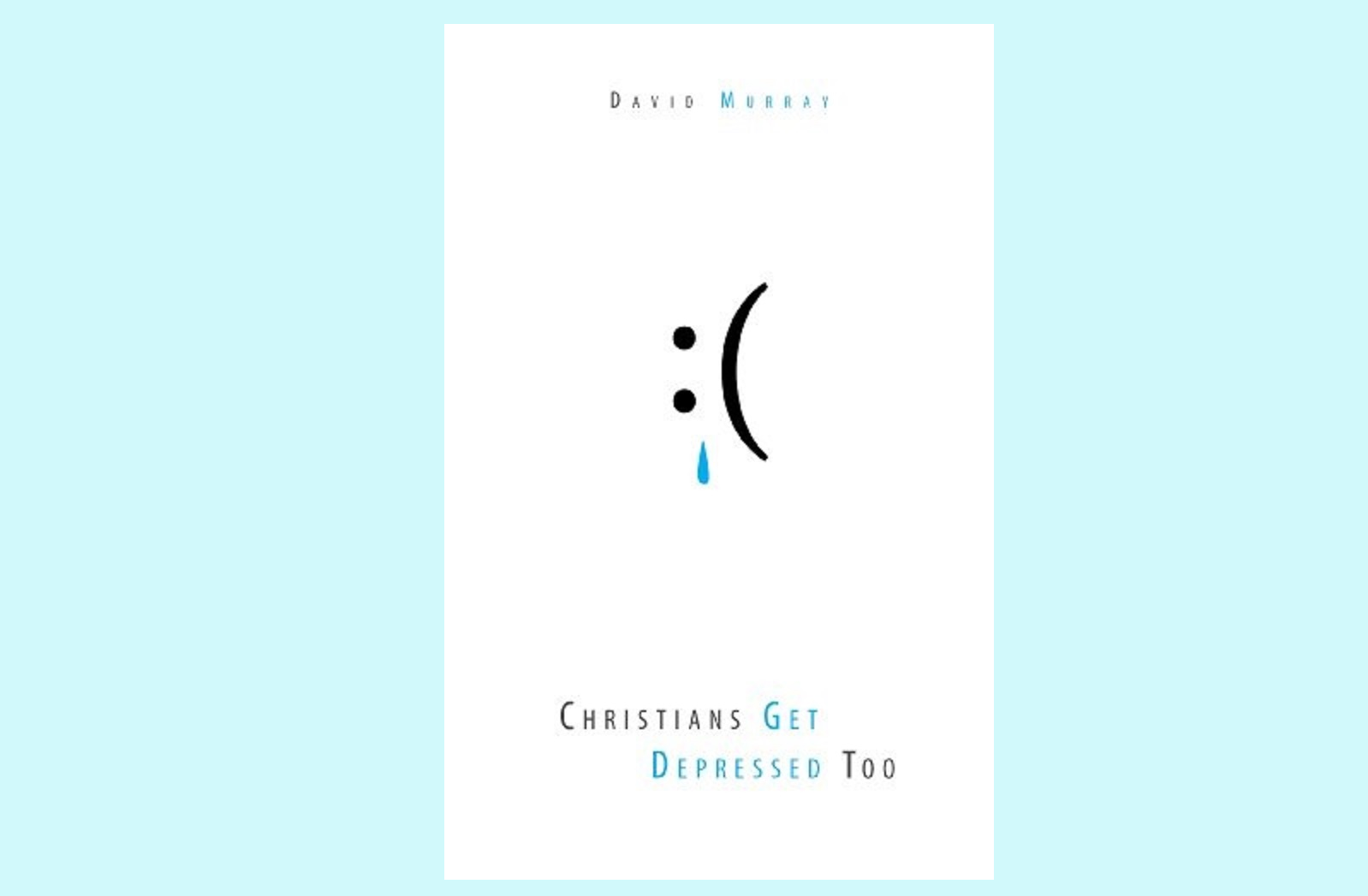Christians Get Depressed Too

Christians Get Depressed Too by David Murray is an excellent primer[1] on whether Christians who suffer from depression is caused by sin or by a genetic predisposition. This book is a short read with only 112 pages. Murray writes his reason for a brief book about this very controversial subject.
“My motivation and methodology in writing, then, is not academic but practical. I desperately want to help sufferers and those who minister to them. That is why this book is short and simple. Depressed people cannot read hundreds of pages. They need short, simple, yet substantive instruction and advice.”[2]
David Murray does an excellent job tackling this complex topic. He disagrees with the Jay Adams followers who take a dogmatic attitude that anxiety and depression are always sinful behaviors. And that anxiety and depression are viewed as disobedient emotional choices in direct rebellion to Jesus Christ. To them, depression reveals a lack of faith in God’s promises, God’s judgment on sinful behavior, or just laziness.
Murray takes the same view as the Puritans, in that depression can be brought about by different situations. The English Protestants of the 16th and 17th centuries were surprisingly adept in the pastoral care of people with depression. They referred to depression as the “black bile, dejection, spiritual desertion, downcast, desolations, anfechtungen[3], accidie[4], dark night of the soul, and the most often-used, all-inclusive term ‘melancholy.'”[5] Puritans recognized that melancholy could originate from multiple sources.
The Puritan’s believed that depression could be caused by:
- Sin
- Poor diet
- Poor health
- Mental illness. Various medical remedies were prescribed. They also recommended walking, mental rest, and shorter Scripture readings.
- God’s sovereignty in allowing depression. They “rightly understood that suffering in general and depression in particular was a result of God’s sovereign purposes and for one’s own sanctification and the building of personal character and that the goal of their counseling was not to ‘necessarily remove the suffering but rather to grow through suffering [which required] an understanding of God’s providence.’”[6]
I found one drawback in this book: Murray does not define the word “trigger,” which would have helped the reader understand. A trigger is an incitement that causes a particular action. Triggers can be either negative or positive. If a person can identify their triggers of depression, they can learn how to cope and deal with those triggers.
Like the Puritans, Murray does not discount that sin can cause depression, but also realizes that there can be depression without the cause of sin. These causes are called triggers. He “considers five triggers of depression: stress, psychology, sin, sickness, and sovereignty.”[7]
Stress can cause depression
Murray equates a piece of elastic to the stress of life. If you stretch it to much, it will snap!
Psychology (The Way We Think)
The way a person was taught how to think and cope with life can cause depression. “Train up a child in the way he should go; even when he is old, he will not depart from it” (Proverbs 22:6). This proverb has two sides. If a child is raised with biblical values, most likely, he will keep those values as an adult. On the other hand, if a child is reared in an alcoholic environment, he will learn how to cope with his problems by abusing alcohol.
Sin
For the Puritans, they recognized sin as being the leading cause of depression. Inquiring about the counselee’s Christian lifestyle was always first and foremost. After much examination and if no blatant sin was found, they would investigate other possible reasons as to why the person may be melancholy.
Sickness
The Puritans also believed that physical illnesses could affect the body and cause depression. That is why they would encourage counselees to get in the sunshine and take a walk. Richard Baxter (1615–1691), a Puritan pastor, said this concerning depression, “If other means will not do, neglect not medicine.”[8]
God’s Sovereignty
In all of this, the Puritans emphasized God’s total control in the counselee’s depression, as it served God’s purpose in that person’s life. God gave Paul a thorn in the flesh to keep him from becoming conceited (2 Corinthians 12:7). A Christian must accept that their depression may have been given to them by God to keep them humble.
If you are a Christian and taking medication for depression, you will be comforted by reading this book. Murray did not write it just for people who suffer from depression, but also devoted a whole chapter to their families and caregivers.
I hope you will also be comforted in knowing that God is sovereign in all of our spiritual and physical ailments. The Lord’s sovereignty should give all Christians comfort, purpose, and hope no matter what lot in life God has ordained for them.
By Rob Robbins, February 2021, churchfm316.com
Editing and Proofreading by Laura Robbins
[1] Primer– a small introductory book on a subject.
[2] Murray, David. Christians Get Depressed Too (p. x). Reformation Heritage Books.
[3] Anfechtungen – (challenges) is the (German) word that Luther used to describe the overwhelming times of spiritual trial, terror, despair, and religious crisis that he experienced throughout his life.
[4] Accidie-spiritual inactivity; apathy; indifference
[5] COUNSELING THE DEPRESSED PERSON: THE PURITAN ALTERNATIVE TO SECULAR PSYCHOLOGY
[6] Ibid.
[7] Murray, David. Christians Get Depressed Too (p. 53). Reformation Heritage Books.
[8] Richard Baxter, The Cure of Melancholy and Overmuch Sorrow, by Faith (p.37).
